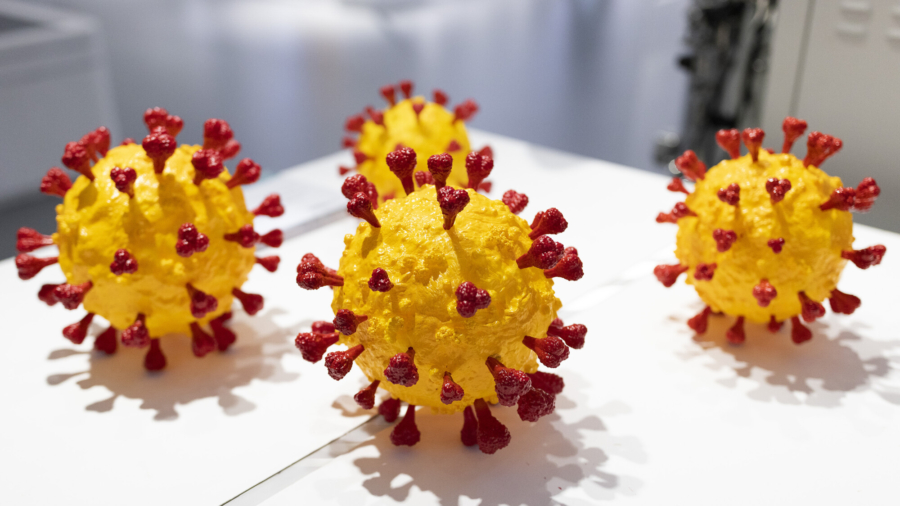Medical journal The Lancet on June 21 updated a statement that it published in 2020 dubbing the hypothesis that COVID-19 may have originated from a lab in Wuhan, China, as a “conspiracy theory” as the possibility gains wider recognition.
During the onset of the pandemic, the “lab leak” theory was disputed in a statement published by a group of 27 scientists in the prestigious medical journal. Published on March 7 last year, that letter became one of the most influential documents in the early days of the pandemic that shaped the discussion on the origins of the CCP (Chinese Communist Party) virus.
Titled “Statement in support of the scientists, public health professionals, and medical professionals of China combatting COVID-19,” the letter stated: “We stand together to strongly condemn conspiracy theories suggesting that COVID-19 does not have a natural origin.
“Conspiracy theories do nothing but create fear, rumors, and prejudice that jeopardize our global collaboration in the fight against this virus,” the 27 scientists asserted.
In the science publication’s update on Monday, it declared that one of the leading virologists who had signed the original letter, U.S. researcher Peter Daszak, had failed to disclose “competing interests” as required by the International Committee of Medical Journal Editors.
“In this letter, the authors declared no competing interests. Some readers have questioned the validity of this disclosure, particularly as it relates to one of the authors, Peter Daszak,” the update states.
The Lancet on Monday said that after it invited all 27 scientists to re-evaluate their competing interests, Daszak submitted an updated disclosure statement noting that his remuneration is paid solely in the form of a salary from EcoHealth Alliance, a New York-based nonprofit research foundation.
Daszak’s group, EcoHealth Alliance, has worked directly with China’s Wuhan laboratories to research coronaviruses. The group has sent federal funds to support gain-of-function research at China’s Wuhan Institute of Virology (WIV) where the have since been reports of potentially the first COVID-19 cases detected in late 2019.
Daszak’s organization in the past had received $3.7 million in funding from Dr. Anthony Fauci’s National Institute of Allergy and Infectious Diseases (NIAID), at least $600,000 of which was sent to the WIV.
Gain-of-function research includes techniques used to alter the genetic content of a virus to study it under different conditions, including viruses with greater resistance to vaccines, more rapid spread among victims, as well as understanding the specific symptoms that victims would develop.
Daszak, who had been appointed as a chairman of The Lancet’s COVID-19 commission, is now “recused from Commission work on the origins of the pandemic,” the group’s website states.
The commission told The Epoch Times in an email that it “urges all scientists who were involved in the US-China research to explain fully and transparently the nature of their work” and that the group will “tap global experts in biosafety and other fields to help assess the relevant hypotheses on the origins of SARS-CoV-2, and to recommend ways to prevent and contain future outbreaks, whether from naturally occurring zoonotic events or research-related activities.”
Separately, the EcoHealth Alliance president this month backtracked on earlier denials that live bats had never been housed at the WIV, after Australian investigative reporter Sharri Markson reported on footage from inside the facility dated in May 2017.
Titled “The construction and research team of Wuhan P4 laboratory of Wuhan Institute of Virology, Chinese Academy of Sciences,” the 10-minute footage is an official Chinese Academy of Sciences video that was released to mark the launch of the WIV, and shows bats being held in a cage at the laboratory, as well as a clip of a scientist feeding a bat with a worm.
Daszak as recently as December 2020 said that the claim that bats were kept at the facility was a “widely circulated conspiracy” and that he hopes it’s an “error” in reporting that will be “corrected.
“No BATS were sent to Wuhan lab for genetic analysis of viruses collected in the field. That’s now how this science works. We collect bat samples, send them to the lab. We RELEASE bats where we catch them!” Daszak said on Twitter in December last year.
Daszak has now admitted that the WIV may have housed bats and that he had not asked them to confirm his previous comments, Markson on Sky News reported.
It comes as calls for a probe into the origins of the CCP virus have intensified in recent weeks as the hypothesis that the virus could have been the product of experiments at WIV receives wider recognition.
Dr. Peter Palese, a microbiologist at New York’s Icahn School of Medicine at Mount Sinai Hospital, and one of 27 virologists who signed the March 7 letter, has now backtracked and says an investigation into the origins of COVID-19 is needed.
“I believe a thorough investigation about the origin of the COVID-19 virus is needed,” Palese told the Daily Mail. “A lot of disturbing information has surfaced since the Lancet letter I signed, so I want to see answers covering all questions.”
Meanwhile, signatory Bernard Roizman, a University of Chicago professor, told the Wall Street Journal that he believes “the virus was brought to a lab, they started to work with it … and some sloppy individual brought it out,” claiming that its personnel “can’t admit they did something so stupid.”
David Asher, a former State Department contractor who helped lead an investigation into the origins of the CCP virus said last month that the virus likely came from the WIV.
“It came out of nowhere, and it was optimized for transmission between humans in a way that no bat-borne coronavirus ever had been,” Asher said.
President Joe Biden on May 26 ordered the U.S. intelligence community to conduct an assessment with a 90-day deadline.
UPDATE: This article has been updated to include comment from The Lancet’s COVID-19 commission.
From The Epoch Times

